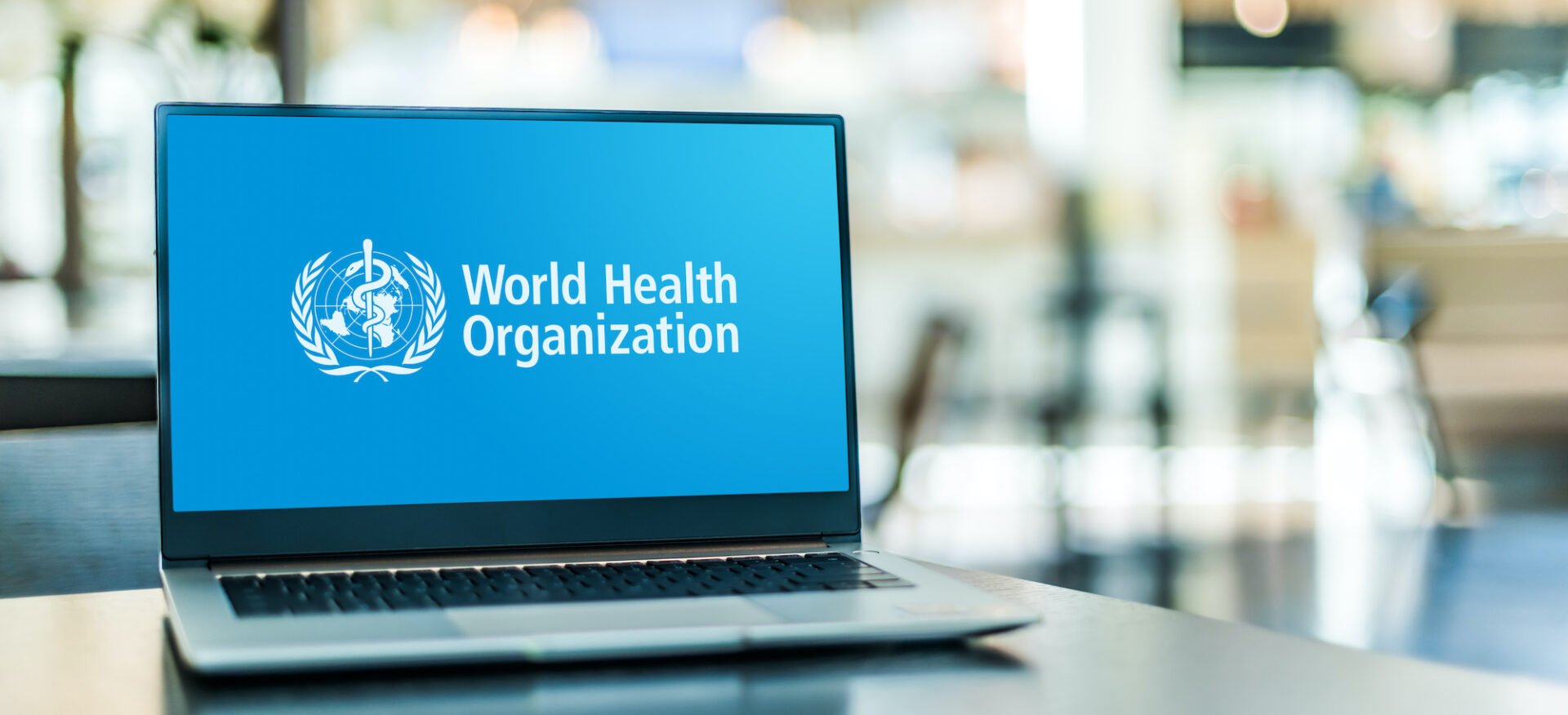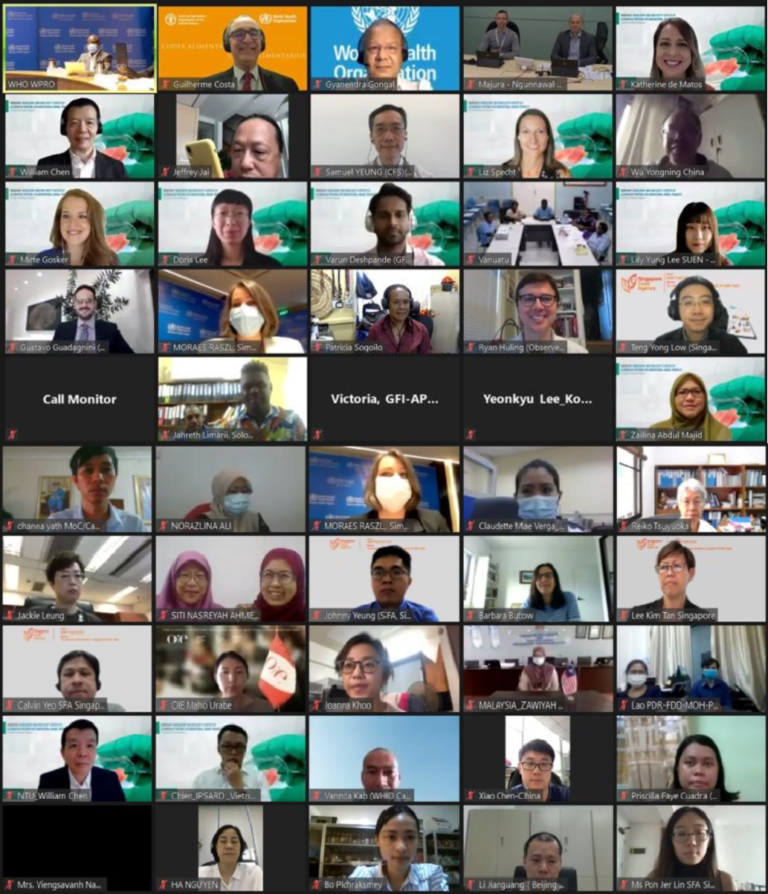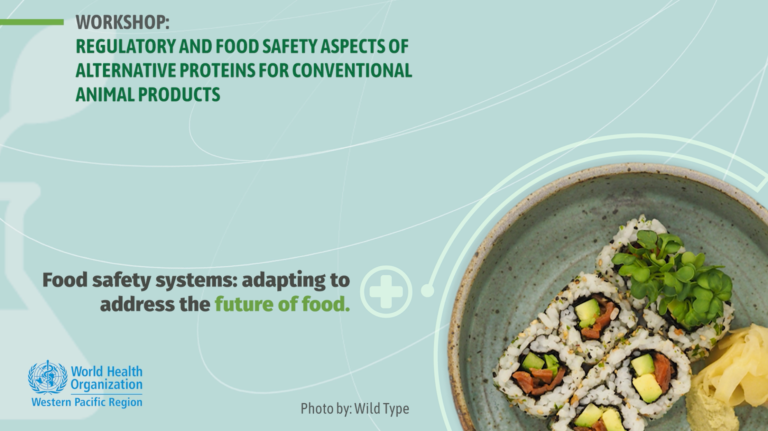WHO and GFI convene historic workshop to discuss global alternative protein regulations

Republished from GFI APAC.
The alternative protein sector is surging around the globe, and not a moment too soon, because conventional meat production is ill-equipped to handle the escalating pressures of skyrocketing food demand, increased climate disruption, and threats of viral outbreaks. In Asia Pacific alone, alt protein investment increased sixfold between 2019 and 2020.
However, current regulations for alternative proteins lag behind consumer demand and few standardized best practices or technical recommendations for consistent international regulation have so far been established. A strong regulatory framework is critical to further advancing the sector and maximizing its potential to improve food security, mitigate environmental degradation, and alleviate global poverty.
To address this gap head on, the World Health Organization’s Regional Office for the Western Pacific (WHO WPRO) joined forces with GFI’s global affiliates to host a historic two-day workshop focused on “Regulatory and Food Safety Aspects of Alternative Proteins for Conventional Animal Products.”

GFI’s global network played an integral role in developing the workshop’s technical sessions, which included presentations by Dr. Katherine de Matos and Gustavo Guadagnini from GFI Brazil, Mirte Gosker from GFI Asia Pacific, Varun Deshpande from GFI India, and Drs. Liz Specht and Elliot Swartz from GFI U.S.
Among the topics covered were: food safety considerations of cultivated meat production, scientific overviews of plant-based proteins and microbial fermentation, insights into consumer perception of alternative proteins, and a case study of Singapore’s forward-thinking regulatory processes. Attendees hailed from member countries/regions across the Pacific region, including Australia, Brunei Darussalam, Cambodia, China, Hong Kong SAR, Lao PDR, Malaysia, Mongolia, Niue, Papua New Guinea, Philippines, Republic of Korea, Singapore, Solomon Islands, Vanuatu, and Vietnam.
Building the roadmap for fair labeling, trade, and approval
“If we have enough food, […] safe food, but we cannot trade this food, we cannot assure food security.”
– Dr. Guilherme Antonio da Costa Júnior, Chairperson, Codex Alimentarius Commission
Earlier this year, GFI was granted official observer status in the Codex Alimentarius Commission, a FAO-WHO joint commission dedicated to developing global standards for food safety and foreign trade to consumers, producers, processors, and regulatory agencies. As an observer, GFI’s expert team of scientists, entrepreneurs, and policy specialists can now actively participate in the international standard-setting process to support a fair and equitable global regulatory framework.

As he opened the workshop’s formal proceedings, Dr. Takeshi Kasai, Regional Director of the WHO WPRO, made clear how high the stakes are by reminding attendees that industrial animal agriculture requires “expansion of grazing land and, of course, causes deforestation and greenhouse gas emissions, leading to global warming.” He added that “It’s about the food, but I [have] learned that there are so many implications to other sectors. And therefore countries need to be able to count on alternative technology for mass industrial production of safe, healthy, protein-rich food in a sustainable and environmentally-friendly way. […] Transforming the food safety inspection system as a new alternative protein becomes reality can be a challenge, but also an opportunity.”
Adapting to a fast-changing protein supply
Alternative proteins can be “a game changer.”
– Dr. Simone Moraes Raszl, Technical Officer, Food Safety, WHO WPRO
The external circumstances surrounding the workshop—of a world still in the grip of a global pandemic that underscored the urgent need for more secure protein sources—were fresh on participants’ minds. In explaining why Singapore has embraced its role as a hotbed of food innovation, which led the nation to become the first in the world to grant regulatory approval for sale of a cultivated meat product, Low Teng Yong, Deputy Director of Regulatory Policy at the Singapore Food Agency, reiterated that one of their top priorities is to “diversify our food sources to ensure that our supply is resilient to [global] fluctuations.”
In times of great turmoil, there is great opportunity, and the necessity of shifting towards a more sustainable and just food system has never been clearer than it is today. As Dr. Babatunde Olowokure, Director of WHO WPRO’s Division of Health Security and Emergencies, declared:
“The way we produce, process, commercialize, prepare, and consume foods has become unsustainable. […] The possibility of producing alternative meat without slaughtering animals carries an obvious benefit. As does the availability of a meat product with a much-reduced environmental impact and reduced health concerns linked with emergence of novel diseases at the animal-human-environment interface. […]
The food we will eat in the future is already here. […] Adapting your regulatory frameworks to include new foods is essential to protect consumer sales and make alternative and nutritious food available.”
Learn more about GFI’s global policy strategy and how you can support our groundbreaking work.

